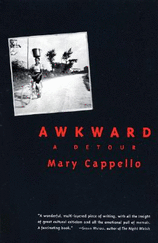Sandra Ruttan
In October 2008 Patrick Shawn Bagley interviewed Sandra Ruttan about What Burns Within and The Frailty of Flesh, her novels featuring series characters Nolan, Hart and Tain, and other matters. One exchange:
Your series has dealt with some heavy issues like religious fanaticism, rape and child abuse. How have readers responded?Read the complete Q & A.
A few people have been wary about the subject matter, but I haven't received any hate mail or strong complaints. Reviewers seemed to pick up on the sensitivity displayed in dealing with the subject matterof the first book. I don't try to exploit these types of stories for shock value, or just use them to manipulate the reader into caring more. The reality is, cops who are confronted with a murdered or missing child are usually going to find it harder to cope with than the murder of a prostitute. I've dealt with child issues in the books because I had a lot of things I needed to get out of my system after working with abused children.
I think my biggest challenge centers on the fact that I don't try to give easy answers. The conclusion doesn't come wrapped up with a bow on top. The stories center on how the events affect the protagonists, and while other lives are touched on, I don't try to give the "sexually-abused-as-a-child-in-front-of-the-fireplace-so-he-became-a-pyromaniac" answer. In a procedural the focus is more on the evidence than on the psychology, and there's almost a sense of reluctant acceptance on the part of the constables. People commit atrocious acts, and they have to see them with their own eyes. Sometimes it really gets to them, but they have to try to focus on the investigation rather than their feelings. That's a tough thing to do when you're confronted with the body of a four-year-old child, just weeks before Christmas, which is the situation Tain and Ashlyn find themselves in at the beginning of The Frailty of Flesh.
 See January Magazine's Author Snapshot: Sandra Ruttan.
See January Magazine's Author Snapshot: Sandra Ruttan.The Page 69 Test: Suspicious Circumstances.
My Book, The Movie: Suspicious Circumstances.
The Page 69 Test: What Burns Within.
The Page 69 Test: The Frailty of Flesh.
--Marshal Zeringue
































